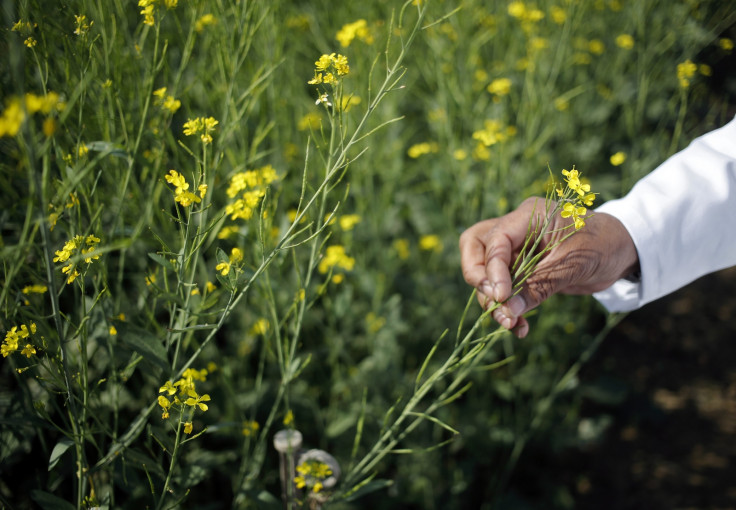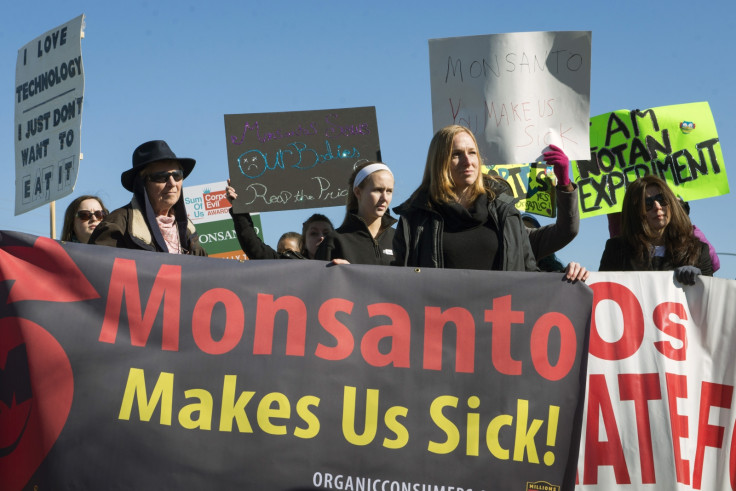Monsanto is not the devil: GM most critical technology to feed growing population

Genetic modification is one of the most critical technologies needed if we are to continue to feed our ever-growing global population, a molecular biologist has said. Nina Fedoroff, a former adviser to Hillary Clinton and Condoleezza Rice, has published a report on the increasing need for GM in crop production – and that deep-seated beliefs about the purported dangers of the technology are holding back progress.
"Monsanto is not the devil," she told IBTimes UK. "It's amazing, they've made some mistakes. Compared with most companies, they're on the benign end - they've done much more good than harm ... It's been kind of amazing to watch the vilification, the turning on Monsanto as a sort of satanic force. There's no government conspiracy."
Myths about the dangers of GM foods are widespread. People believe they cause cancer and allergies among a host of other health problems, that they result in the overuse of pesticides resulting in environmental destruction and even that GM tomatoes taste like fish (none of these is true). In the journal Agriculture and Food Security, Fedoroff warns of the detrimental influence that misinformation – and indeed policy – has on the perception of GM crops: "GM crops are arguably the safest new crops ever introduced into the human and animal food chains," she said.
Looking at recent studies into the safety of GM, she points out that the overwhelming evidence is that GM foods on the market are as safe if not safer than non-GM foods: "Every credible scientific body that has examined the evidence has come to the same conclusion."
Keeping up with a growing population
The trouble is getting this message across – and the consequences of not being able to do so. It is estimated the global population will reach 11.2 billion by 2100. The UN believes that food production will need to increase by 70% by 2050 if we are to keep up with demand as current yield growth is insufficient. As well as this, climate change is expected lead to a shift in arable land. In order to keep people fed, we will have to grow more food on the same amount of land with less energy, water and chemicals. And GM is the way to do this, Fedoroff argues.
"The problem is that plants need a growing season and they're limited on the planet by how much sunlight there is, because the days are longer and shorter ... You need long days to get crops to yield. And that's where the biotechnology comes in. Historically, people selected plants that weren't as dependent on daylight. The kinds of changes we need to be making to adapt to climate change are creating crops that are more drought tolerant, heat tolerant, and can occupy a wider range of habitats.

"If we don't use modern molecular techniques to modify plants, we're throwing away all the knowledge, and the incredible understanding of how plants work at the biomolecular level, would be a tragedy. Because we need to be able to move things faster than we've ever moved them before. We've domesticated plants over tens of thousands of years, but in the 20<sup>th century that accelerated enormously and now we're in a place where we can accelerate it even more just at a point where we need to do that."
And farmers are happy to get on board. Studies cited in the article show that more than 90% of farmers growing GM crops are resource-poor, while their production has led to a 37% drop in pesticide use and a 22% increase in crop yields. Further to this, profits have increased by 68%: "The simple reasons that farmers migrate to GM crops are that their yields increase and their costs decrease." She added that we have the wisdom to re-invest in the agricultural research and development to increase agricultural productivity while lessening the environmental impact, but whether or not we will do it remains to be seen.
Belief barriers
Beliefs are a difficult thing to shift, Fedoroff said, especially ones that are widely held such as the "dangers of GM". As a result, people's attitudes do not change very fast. "I have come to understand how and why people form belief systems that are so at odds with scientific facts. I also understand the magnitude of the efforts on the part of individuals and organisations to exploit people's fears for profit. So I find it more tragic than frustrating, because GM technology is such an important part of continuing to increase the food supply for a still growing population and doing it more sustainably. A major problem is that a majority of us live in cities and have no idea what it takes to produce food. Notice that farmers have taken to GM crops at unprecedented rates — they get it."
She added that the backlash against GM is similar to that of anti-vaxxer campaigns currently gaining momentum in western countries. "It is, indeed, the same aspects of our psychology that are at work in forming people's belief that vaccination causes autism despite the scientific evidence that they are not causally connected — and making such fear-based beliefs extremely difficult to change."

There is, however, cause for hope. While it is impossible to change people's beliefs by force, there are several examples where, over time, people's minds have changed as a result of policy and accurate information. For example, she said that while the media can spread information extremely quickly about GM "dangers", so too can they present evidence showing the benefits. "When smallpox vaccinations were introduced, much of the same fear-based resistance emerged. Yet we have succeeded, despite continuing resistance, in wiping out smallpox.
"Judging by history, many such controversies disappear over time — the history of public health measures is full of such controversies. But it isn't a foregone conclusion that policy makers will listen to science and take the longer view, since they, too, are vulnerable to public pressure."
What will happen in the future is unclear, but if perception can change, so too could GM farming and technology: "I don't know if we can overcome these belief systems because belief systems are very strong ... look at religion. It's very deeply rooted in our evolutionary history, so when someone tries to set up a culture to stamp out religion it comes back. It's how we work. It doesn't mean we can't make progress. We have lots of examples where influence has prevailed over people's fears and concerns. Will it happen in this area? I don't know."
© Copyright IBTimes 2025. All rights reserved.






















